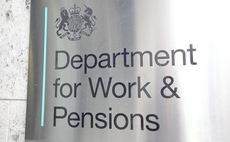Tax breaks for entrepreneurs, startups and innovators, and new tech colleges to boost skills
Chancellor George Osborne presented his 2011 Budget earlier today, making several announcements that will directly impact the IT industry. There was an enormous focus on restructuring the econom...
To continue reading this article...
Join Computing
- Unlimited access to real-time news, analysis and opinion from the technology industry
- Receive important and breaking news in our daily newsletter
- Be the first to hear about our events and awards programmes
- Join live member only interviews with IT leaders at the ‘IT Lounge’; your chance to ask your burning tech questions and have them answered
- Access to the Computing Delta hub providing market intelligence and research
- Receive our members-only newsletter with exclusive opinion pieces from senior IT Leaders




















